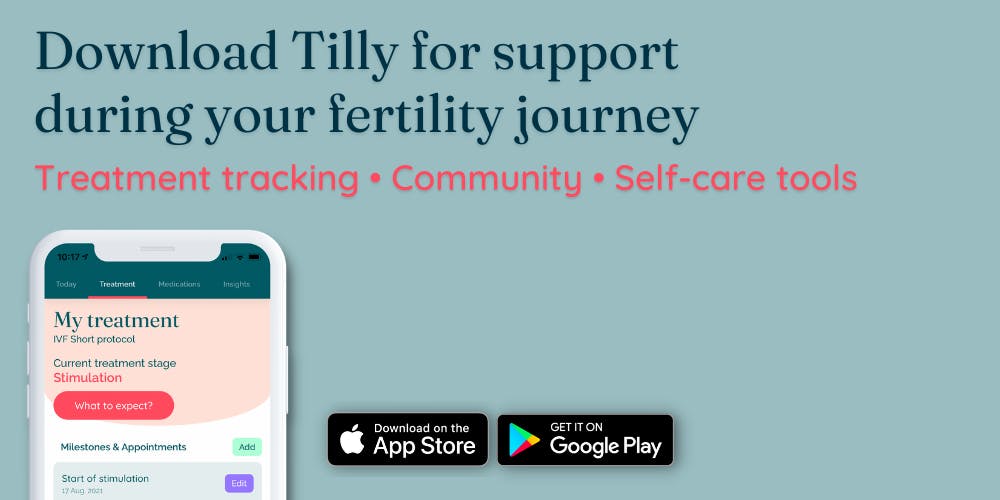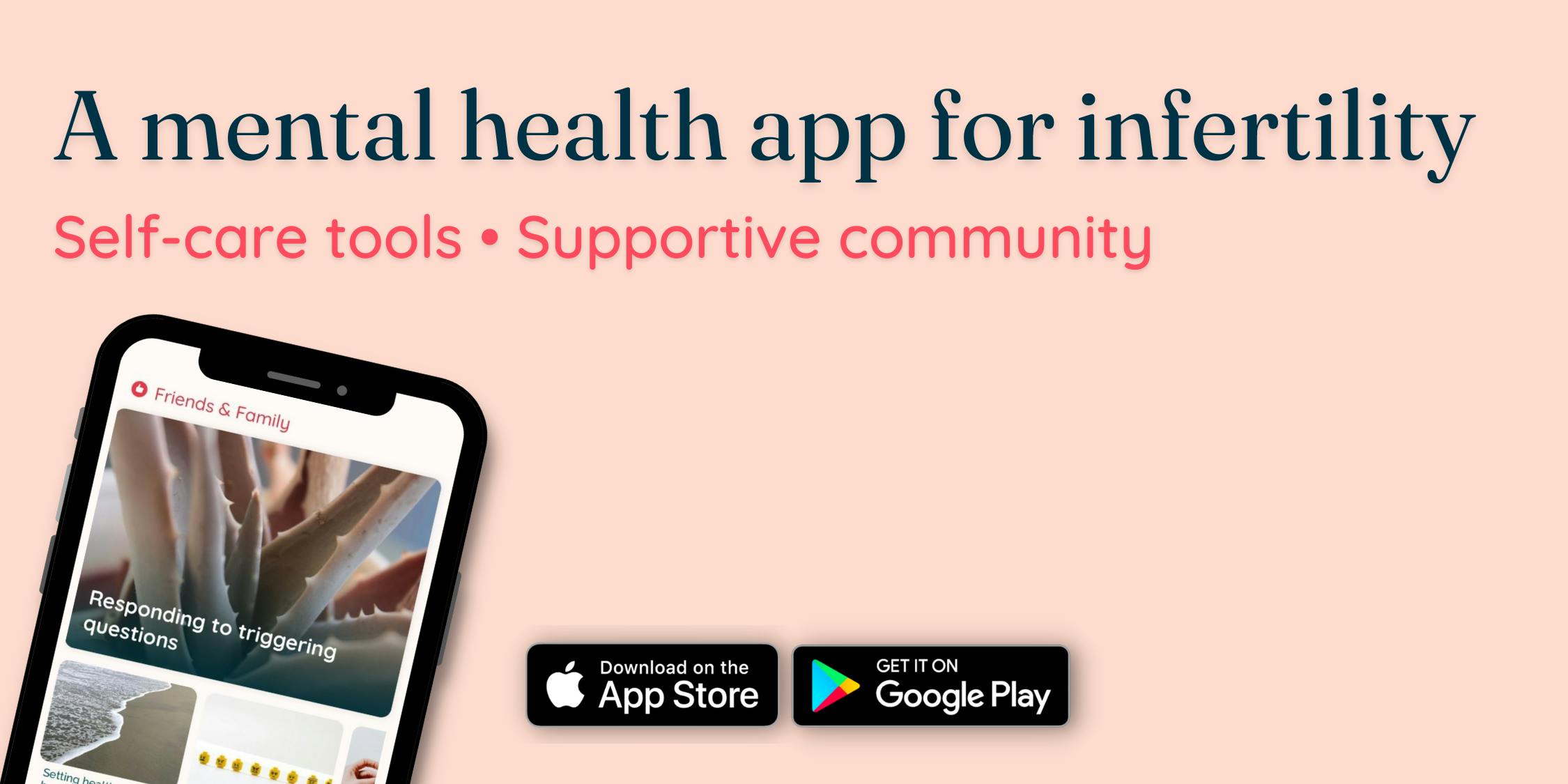Infertility and feelings of anguish, grief and despair
Infertility can create concrete feelings that are easy to pinpoint and define, like feeling jealous when you see a pregnant woman, or worried if a treatment will work. But it can also cause a more general feeling of sadness and despair; feelings that can be hard to put words to.
The impact of infertility goes beyond the obvious fact that you long for a baby; multiple studies have proven that it affects your relationships, your sense of self and daily activities too.
Dr. Brené Brown talks about the feeling of anguish, which many people with infertility can connect with. She says:
“Anguish is an almost unbearable and traumatic swirl of shock, incredulity, grief, and powerlessness. The shock and incredulity meaning, you can’t believe it’s happening. It completely takes your breath away. The grief and powerlessness of anguish steal your mind and your heart.
But the thing about anguish is that it doesn’t just come for our breath and our mind and our heart. Anguish comes for our bones. Anguish is a crumpling on ourselves, a falling to the ground.”
- Dr. Brené Brown
The fact that you may feel misunderstood or that you’re not allowed to have these emotions, can make it particularly difficult. There is a concept in psychology called “invisible loss” or “disenfranchised grief,” which is the experience of grieving something that others don’t typically recognize as a loss - quite applicable for infertility. Basically, your grieving doesn't fit in with your larger society's attitude about what qualifies as grief. This may make it harder for you to recognize and accept your own feelings, and it often causes a lack of support from your friends and family. Together, these things can make your grieving process more difficult to cope with.
Remember this. We do not only grieve when we lose a loved one; it is also fully possible and normal to grieve a vision of life that doesn’t turn out to be true, or a version of yourself you haven’t gotten to be or no longer exists.
Here’s what you can do:
- Acknowledge your pain and accept that grief can trigger many different and unexpected emotions. Letting yourself feel the full range of emotions and accepting that theyre part of who you are right now is the first step to learning to cope with them.
- If you feel alone and perhaps a bit overwhelmed by all these feelings, visit an online support community to read about the experiences of others in the same situation. You are not alone!
- Create your own rituals for the loss and despair you are feeling. You might need to grieve:
The life you thought you’d be living today.
The experience of a joyful positive pregnancy test.
Your genetic child, if you are pursuing donor treatments or adoption.
The identity you thought you’d have.
Friendships you’ve lost through a lack of connection or support.
The child you thought you’d have, if you transition to a childfree life.
You can write a letter to what you’ve lost, identify an object that represents your loss, light a candle, release something (biodegradable) into a river, burn something in a fire, get a tattoo, or bury something to honor and represent your grief. You can do this alone, or invite someone close to you to join you.
Moving through an action to acknowledge your pain can help it not take over inside you. - Think in cycles, not lines. If you find that you’ve started feeling good, only to then feel bad again, it doesn’t mean that you’ve relapsed or gotten worse. It’s just how grief works; it’s non-linear, and you can sometimes circle back to where you’ve been before. So try not to feel disappointed if you thought you were having a good day and then suddenly find yourself crying in the baby food aisle at the supermarket.
- Take care of your body and mind. Feeling sad is exhausting, so try to be kind to yourself. Get sleep, eat nourishing foods, and try to find relaxation methods that work for you.
Try these exercises in Tilly's app...
- Meditation: coping with negative thoughts
Do you get stuck in negative thought spirals? This meditation can help you cope, accept and move through difficult feelings. - Journaling: accepting a feeling
A tool to help you process a feeling you’re having, and figure out how you can feel supported when the feeling arises. - Allowing yourself to grieve
A practical guide to understanding feelings of grief, and how to grieve losses during infertility. - Ceremonies can be healing/honoring a loss
So many losses go unacknowledged by society, but grieving rituals for losses in infertility can be powerful and healing.
About the author
Maya Maria Brown, M.A., is an infertility mental health expert. She has a master’s in Counseling Psychology, and has worked with individuals and couples on infertility and relationships. She also has personal experience with infertility and is currently in treatment.
2022-05-29
A mental health app for your fertility journey
Evidence-based self-care tools and facts. Supportive community. Treatment tracking.
Previous articles
Breaking the silence: Infertility and stress during stress awareness month
2025-04-14
Exciting news: Tilly is now part of Rhea
2025-03-31
How infertility impacts men's mental health and ways to cope
2024-11-22
Baby Loss Awareness Week: coming together to support those affected
2024-10-14
PCOS and mental health: a crucial connection
2024-09-25
How to support a friend struggling with involuntary childlessness: A guide for loved ones
2024-09-17

